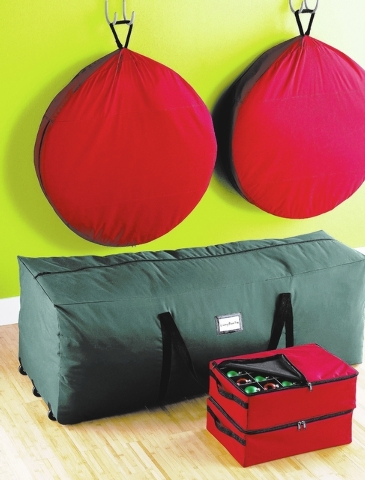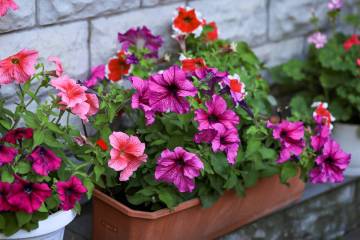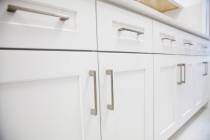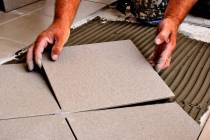Resolve to declutter for new year
The start of a new year is a time of reflection and goal-setting, and one of the most popular New Year’s resolutions is to get organized. In fact, January is National Get Organized month.
But saying you want to get organized is not the same as doing something about it. Some people need a helping hand to unclutter their thoughts and their homes. For them, hiring a professional can be money well-spent.
“People get to a point where they are overwhelmed and it just paralyzes them. They say, “I don’t know where to start,’ ” said Brenda Prinzavalli, an organizing strategist and founder of Balanced Organizing Solutions.
“One of the first things I do is to clarify what they mean when they say, ‘I need to be more organized,’ ” she added. “I help people take the abstract term and find out what it means to them.”
The starting point to any good organizational plan is to set a standard for what stays and what goes, and then designate space for what is staying.
“It cuts the emotional decision when you have certain defined standards,” Prinzavalli said.
An obvious reason for clutter is that people are holding onto things that no longer serve them, said Renee Ursem, a professional organizer and owner of Get It Together LLC.
“I help (clients) with things that they’re on the fence about — maybe it’s something that is real expensive or a gift someone gave them,” she said. “I tell them, ‘You’ve had this a long time. It’s had a good life, so let’s give it to someone else who can use it.’ ”
Bedroom closets are often an area where clothes and accessories accumulate to the point of disarray. An organized closet allows “quick and easy access to everything, where everything is properly displayed,” Prinzavalli said.
Shelves, double hanging rods, bins and baskets certainly help, but as Ursem said, “Closet organizers are great, but that doesn’t mean you’re organized.”
Ursem and Prinzavalli agree that clients should hold onto articles of clothing that make them look and feel good, and purge the rest. Prinzavalli employs the 1-to-10 scale.
“If that item makes you feel like a 5, then get rid of it,” she said.
Ursem takes it a step further. “A lot of it comes down to being realistic. Deal with the reality of where you are now, not where you were before you had the baby or before you turned 40.
“It’s time to stop punishing ourselves and move on,” said Ursem, who always keeps a shopping bag in her closet to deposit unworn or ill-fitting clothes.
But Prinzavalli said if a client’s goal is to lose weight for the new year, it’s fine to keep an incentive piece. “Display it so you can see it,” she added.
In the kitchen, the biggest problem is keeping things visible and accessible in cabinets, according to Nina Smith, public relations coordinator for The Container Store.
“Since cabinets are built so deep, add sliding drawers for lower cabinets, tiered stacking shelves for cabinets at eye level and pull-down racks for hard-to-reach cabinets,” she said. “Keep your most frequently used items up front.”
Ursem recommends using small bins for things that tend to get lost in big spaces, such as seasoning packs for dips, pasta and snacks.
Drawer clutter is also a problem. “To keep things organized, use expandable or modular organizers and utilize every inch,” Smith said. “Separate items by occasion — keep your barbecue utensils separate for your products for entertaining.
“You can also choose to organize items by shape, function or frequency.”
Functionality is also the key to maintaining a clear space on the counter for cooking. “Keep only the necessary items you use daily — coffee maker, can opener, utensil basket, etc. — out on your countertop. Anything not used frequently will only clutter your countertop,” Smith said.
In the home office, Ursem says it’s important to have an appropriate-sized wastebasket and a shredder, and they “need to be in reach where you can just toss and shred.”
For other paperwork, Smith recommends two categories for files: active and inactive.
“Keep active files accessible — on your desk, in a rolling file cart or in a filing cabinet — and store inactive files in a labeled storage box,” she said. “This will reduce time spent rummaging through a huge stack of files that may not be current.”
Because many of the new modern, sleek desks do not have center drawers, a desk caddy is essential for holding such items as pencils and paper clips, Ursem said.
And don’t forget the often-wasted space available behind the door or on the wall over the desk. “Using products such as wall-mounted grids or over-the-door hanging storage racks to hold desk accessories, magazines, CDs or DVDs will optimize limited work space,” Smith said.
Although being organized makes things easier to find, Prinzavalli said a bigger part of that strategy is that things are easier to put away. Yet, she stresses that every family member must be on the same page so that one person isn’t responsible for the time-consuming task of picking up after everyone else.
And that means children need to take responsibility for their belongings. The best advice for dealing with children is to be organized yourself, Ursem said.
“If you’re not organized, then you’re not a good role model,” she added.
Always be upfront about what you expect from them, said Ursem, who has a 7-year-old daughter. “If I notice that she’s not playing with something anymore, then it goes away.
“We need to teach kids we can’t keep thing forever. As we grow out of things, we donate them. Otherwise there’s no room for the new things,” she said. “And then (adults) need to model that in our own lives.”
So why is it that Americans have so much stuff compared to other cultures?
“We live in a consumer society that says buy more. It happens and we’re not even consciously aware of it,” Ursem said.
“Media doesn’t help. We’re always encouraged to buy more,” she added.
Prinzavalli recommends paring down on personal items as soon you buy something new.
“If you pick up five new items, then get rid of five items,” she said. “If you’re trying to downsize, then get rid of 10 items.”
Prinzavalli provides more tips in her book, “31 Days to an Organized Life,” which describes 31 mini-organizing projects for each day. The book is available on her website, www.brendaprinzavalli.com.
Ursem offers organizational advice in an e-newsletter at get-it-together-llc.com.
Prinzavalli and Ursem are members of the National Association of Professional Organizers, whose members adhere to a code of ethics when conducting business. Its website, www.napo.net, provides an automated directory for consumers to find professional organizers in their area.
































